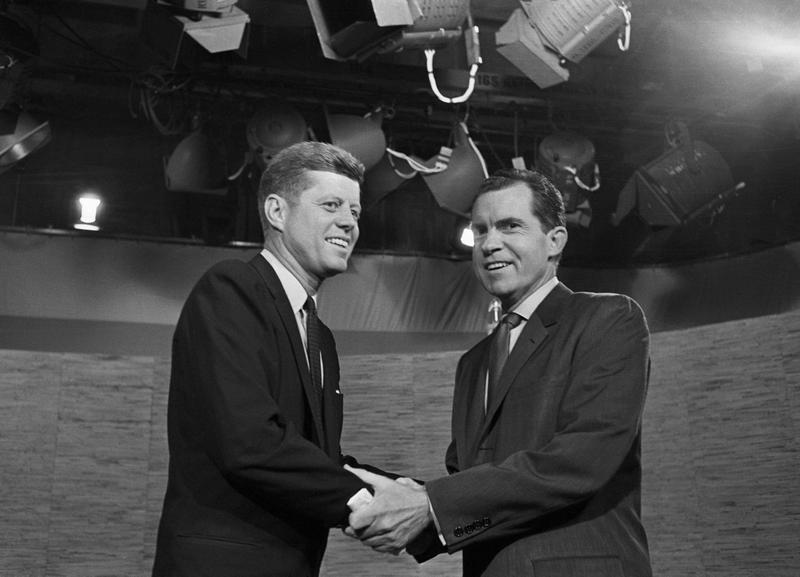1960 Election of Kennedy Vs. Nixon
By | July 26, 2021

President John F. Kennedy persists as one of the most famous Commander in Chiefs in American history. While his historical immortality derives in part from his tragic assassination and infamous foibles, the 35th President of the United States also deftly guided the country through one of the most fraught and perilous impasses in human history: the Cold War.
The incredibly tight 1960 election between JFK and Richard Nixon decided which man would guide the country through a nuclear standoff with the Union of Soviet Socialist Republics (USSR). Judging by how Nixon ran the White House a few years later, we can safely say America made the right choice. Here’s how the ‘60 election potentially averted nuclear fallout.

Democratic Nomination
Heading into the Democratic election, Kennedy remained far from a shoo-in. In fact, much of the country held concerns over his relative youth, 43 years old, and his Roman Catholic roots. To win the votes of middle America, Kennedy needed to defeat Hubert H. Humphrey of Minnesota in his backyard.
Proving that a wealthy Catholic could unseat his working-class opponent in the Midwest would confirm JFK’s presidential chances. Humphrey also threw everything he had at Kennedy, even burning through savings for his daughter’s wedding. In the end, Kennedy’s superior planning and more considerable resources won out. In West Virginia, where it was legal to pay workers and voters money to show up at the polls, Kennedy's financial backing really showed.

Kennedy Vs. Nixon
After taking down Senator Lyndon B. Johnson at the Democratic National Convention and making Johnson his running mate, Kennedy set his sights firmly on Nixon. He pledged to “get the country moving again,” blaming President Eisenhower for the country’s “conservative rut” and by extension Nixon who served as Eisenhower’s Vice President. By late August the pair stood neck and neck. One Gallup poll placed them dead even at 47% apiece with 6% of the country undecided.

Public Perception
To assuage the many non-religious and protestant voters worried about his Roman Catholic bias, Kennedy took questions from leading Protestant clergy in Houston. The idea that the country held deep concerns over Kennedy’s over-religiosity seems almost laughable today but the separation between Church and State was an important distinction to many. Kennedy also needed to overcome Nixon’s public recognition since the Vice President was comparatively much more well known. To do so, Kennedy challenged Nixon to televised debates.

Frost Nixon
As a famously strong debater, Nixon accepted. The pair opened the door to televised arguments that have become a staple of the country’s election process. 70 million people tuned in to the first debate and witnessed a sweaty, tense, and ill-prepared Nixon juxtaposed against the relaxed, unruffled, and telegenic presence of Kennedy. Nixon had also just gotten out of the hospital, thanks to an infected cut, and wore a light-colored suit that blended poorly into the gray background of everyone’s black and white TVs.

Close Call
As the campaign wore on, Nixon suffered from an early pledge, promising he would visit every state in the Union. While Tricky Dick shuffled from state to state, wasting time and money on parts of the country without many electoral votes, JFK got scientific. He concentrated his considerable resources on states with the most electoral votes.
In the end, Kennedy only won the popular vote by less than 120,000 votes out of the record 68.8 million votes cast. On the other hand, he definitely won the electoral college 303 to Nixon’s 219. The lack of separation between the two spurred on rumors of voter fraud, which later bred conspiracy theories to Kennedy’s connection with the mob that continue today. Ultimately, the court challenges of voter fraud were proved unsuccessful and the rest was history.
